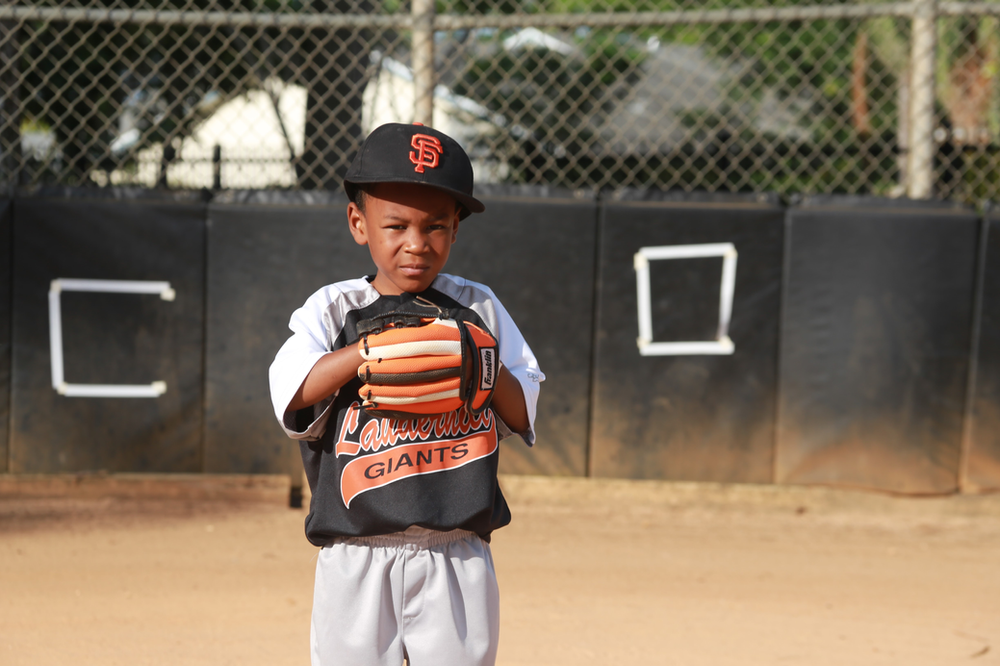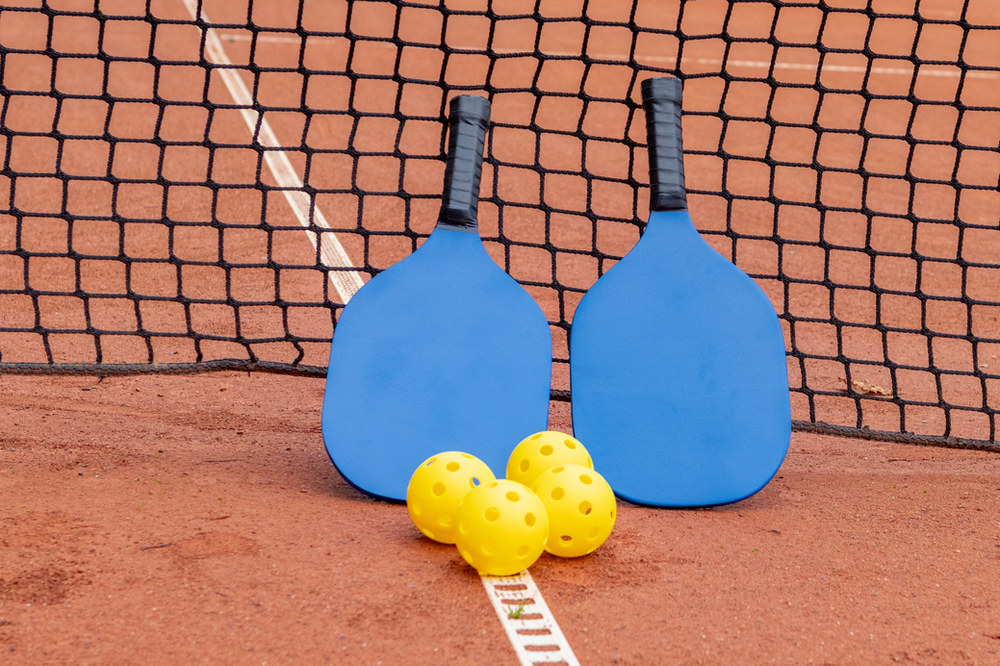In Little League, getting the hang of hitting a baseball can be a big challenge. That's where pitching machines come in—they're like helpful teammates that make sure each pitch is just right.
In this blog post, we're going to talk about why these machines are a big deal and how they can make a real difference for Little League players.
Our goal is to assist parents and coaches in selecting the best pitching machine for little league, considering products like the Louisville Slugger Black Flame, the Louisville Slugger Blue Flame, and the Jugs BP1. So, let's delve into the reviews and uncover the key to hitting success in Little League!
Benefits of Using a Pitching Machine in Little League
Consistency in Pitch Delivery
One major perk of using a pitching machine is that it throws pitches with a steady rhythm. This means players get a consistent flow of pitches, helping them practice and improve their hitting technique.
With each ball delivered in the same way, young players can better predict and learn how to handle different types of pitches.
Opportunity for Players to Focus on Batting Skills
Pitching machines take the pressure off coaches or parents having to throw pitches.
This allows players to concentrate fully on their batting skills without worrying about the quality of each throw.
It's like having a reliable practice partner, giving players more time to perfect their swings, adjust their stance, and work on other essential aspects of batting.
Increased Safety for Young Players
Safety is a top priority, especially in youth sports. Pitching machines contribute to a safer practice environment for Little League players.
Since the machine controls the pitch, there's a reduced risk of erratic throws or accidental injuries that may occur when relying on human pitchers. This allows young athletes to focus on their development without unnecessary safety concerns.
Factors to Consider When Choosing a Pitching Machine
Age Group of Little League Players
The first thing to think about is the age of the Little League players who will be using the pitching machine.
Different age groups may require machines with specific features or adjustments. Understanding the skill level and needs of the players will help in selecting a pitching machine that suits their developmental stage.
Type of Pitches the Machine Can Throw
Pitching machines vary in their ability to throw different types of pitches.
Some machines offer a variety, including fastballs, curveballs, and sliders.
Considering the skill level of the players and the desired complexity of practice sessions, it's crucial to choose a machine that can deliver the types of pitches that will challenge and enhance the players' abilities.
Adjustable Speed and Pitch Height
The ability to adjust the speed and height of pitches is a key factor in tailoring the practice experience to the players' needs.
Beginners might benefit from slower pitches at a lower height, while more advanced players may require faster pitches with variable heights. Look for a pitching machine that provides a range of speed and height adjustments for versatility in training.
Portability and Ease of Setup
Convenience matters, especially when transporting equipment to different practice locations.
Consider the portability of the pitching machine and how easy it is to set up. Machines that are lightweight and come with straightforward setup instructions can save time and effort, making the overall experience more enjoyable for both coaches and players.
Durability and Build Quality
Investing in a durable pitching machine is essential for long-term use. Little League practices can be rigorous, and the machine should withstand regular wear and tear.
Assess the build quality, materials used, and overall durability of the machine to ensure it can withstand the demands of continuous use and various weather conditions.
A robust and well-constructed pitching machine will offer reliable performance over time.
Top 3 Best Pitching Machines For Little League
1. Louisville Slugger Black Flame Pitching Machine
The Louisville Slugger Black Flame Pitching Machine is a popular choice among coaches and parents looking to enhance their Little League players' batting skills. Here's a closer look at its features, pros, cons, and why we like it.
Features:
- Variable Speed Control:
- The machine offers adjustable speed settings, catering to players of different skill levels. This versatility allows beginners to start slow and gradually increase the speed as they improve.
- Throws Various Pitches:
- Equipped to throw a variety of pitches, including fastballs and curveballs, providing a dynamic practice experience for players looking to master different pitch types.
- Height Adjustment:
- The pitch height is easily adjustable, accommodating players of varying heights and helping simulate realistic game scenarios.
- Automatic Feeder:
- The automatic feeder feature enables continuous and uninterrupted practice sessions, allowing players to focus on refining their batting techniques without constant manual reloading.
- Portability:
- With its lightweight design, the Louisville Slugger Black Flame Pitching Machine is easy to transport, making it convenient for practices on different fields or locations.
Pros:
- Consistent Pitching:
- The machine delivers pitches with impressive consistency, aiding players in developing their timing and swing mechanics.
- Durable Construction:
- Built with durability in mind, this pitching machine can withstand regular use and is well-suited for the demanding environment of Little League practices.
- User-Friendly:
- The user-friendly design and straightforward controls make it easy for both coaches and players to operate, ensuring a hassle-free practice experience.
- Affordable Price:
- Compared to other pitching machines in its category, the Louisville Slugger Black Flame offers excellent value for its features and performance.
Cons:
- Limited Pitch Types:
- While it throws various pitches, some users may find that it lacks the complexity of more advanced pitching machines that offer a wider range of pitch options.
- Power Source Dependency:
- As an electric pitching machine, it requires a power source.
This may limit its usability in locations without readily available electrical outlets.
Why We Like It:
The Louisville Slugger Black Flame Pitching Machine stands out for its reliability, affordability, and ease of use. It provides a consistent and adjustable practice experience for players at different skill levels. The combination of variable speed control, pitch variety, and durable construction makes it a valuable asset for Little League practices.
Whether you're a coach aiming to improve team performance or a parent supporting your child's development, this pitching machine offers a cost-effective solution without compromising on quality. Overall, it's a fantastic tool for honing batting skills and enhancing the overall baseball experience for young players.
2 Louisville Slugger Blue Flame Pitching Machine
The Louisville Slugger Blue Flame Pitching Machine is a reliable and popular choice for those seeking an effective tool to enhance their baseball skills.
Let's delve into its features, pros, cons, and why we appreciate this pitching machine.
Features:
- Manual Operation:
- The Blue Flame Pitching Machine is manually operated, allowing players and coaches to have full control over pitch delivery. This hands-on approach is excellent for tailored and personalized practice sessions.
- Adjustable Pitch Speed:
- With an adjustable speed setting, this pitching machine caters to players of different skill levels. From beginners refining their technique to more advanced players looking for a challenge, the Blue Flame provides a customizable experience.
- Versatile Design:
- This pitching machine accommodates various types of pitches, making it a versatile choice for players looking to practice different aspects of their batting skills. It's suitable for mastering both fastballs and breaking balls.
- Portability:
- Featuring a lightweight design, the Blue Flame is easy to transport.
Whether you're practicing on different fields or setting up in your backyard, its portability adds convenience to your practice routine.
Pros:
- Affordability:
- The Louisville Slugger Blue Flame offers an affordable option without compromising on quality. It provides essential features at a budget-friendly price point, making it accessible to a wide range of users.
- No Power Source Needed:
- Unlike electric pitching machines, the Blue Flame operates without the need for a power source. This makes it suitable for use in locations where electricity might not be readily available, offering flexibility in practice settings.
- Durable Construction:
- Built with durability in mind, this pitching machine can withstand regular use, ensuring a long-lasting investment for players and coaches committed to improving their skills.
Cons:
- Manual Operation Limitations:
- The manual operation, while providing control, may require additional effort from the person operating the machine. This could be a consideration for those looking for a more automated pitching experience.
- Limited Speed Range:
- While adjustable, the speed range may not be as extensive as some electric models.
Advanced players seeking extremely high speeds for training purposes might find the Blue Flame's upper limit to be a bit restrictive.
Why We Appreciate It:
The Louisville Slugger Blue Flame Pitching Machine is a solid choice for those who value manual control and affordability. Its versatility, durable construction, and portability make it an excellent option for players and coaches aiming to improve their hitting skills.
Whether you're a parent assisting your child's practice or a coach looking for a cost-effective solution, the Blue Flame delivers a reliable and customizable experience.
Overall, it's a commendable pitching machine that strikes a balance between functionality and affordability, making it a valuable asset for baseball enthusiasts at various skill levels.
3. Jugs BP1 Baseball/Softball Combo Pitching Machine
The Jugs BP1 Baseball/Softball Combo Pitching Machine is a versatile and high-performance tool designed to elevate baseball and softball practice sessions. Here's an in-depth look at its features, pros, cons, and why we find it commendable.
Features:
- Dual-Use for Baseball and Softball:
- The BP1 Combo Pitching Machine is designed to accommodate both baseball and softball, providing a comprehensive solution for players involved in both sports.
This versatility adds value to the machine for multi-sport athletes or coaches working with diverse teams.
- Adjustable Speed and Pitch Type:
- Offering a wide range of adjustable speeds, this pitching machine caters to players of various skill levels. Additionally, it can throw different pitch types, including fastballs, curveballs, and sliders, providing a realistic and challenging practice experience.
- Digital Readout Display:
- The inclusion of a digital readout display enhances precision in controlling pitch speed. Coaches and players can easily set and monitor the exact speed desired for optimal training sessions.
- Feeder and Remote Control Options:
- The BP1 comes with the option for a ball feeder, ensuring a continuous flow of balls for uninterrupted practice. Additionally, the availability of a remote control adds convenience, allowing coaches to make real-time adjustments without interrupting the session.
- Portability and Durability:
- Despite its robust build, the machine is designed for portability.
The inclusion of wheels and a manageable weight makes it easier to transport between fields or practice locations.
Pros:
- Versatility Across Sports:
- The ability to switch between baseball and softball modes makes this pitching machine suitable for a broader audience, accommodating players from both disciplines.
- Comprehensive Speed and Pitch Type Options:
- With a broad range of adjustable speeds and the capability to throw various pitch types, the BP1 ensures players can tailor their training to specific skill development needs.
- Convenient Accessories:
- The availability of accessories such as a ball feeder and remote control enhances the overall user experience, providing added convenience for coaches and players during practice.
Cons:
- Price Point:
- While the Jugs BP1 offers a wide array of features, it comes at a higher price point compared to some other pitching machines. However, the investment may be justified for those seeking a comprehensive and durable solution.
- Power Source Dependency:
- Like many electric pitching machines, the BP1 requires a power source, which may limit its use in locations without easily accessible electricity.
Why We Find It Commendable:
The Jugs BP1 Baseball/Softball Combo Pitching Machine stands out for its versatility, offering a dual-use solution for both baseball and softball players. The combination of adjustable speed, pitch variety, and convenient accessories makes it a top choice for coaches and players serious about advancing their skills.
While the price may be higher, the machine's durability and comprehensive features make it a worthwhile investment for those committed to excellence in their baseball and softball training.
Overall, the Jugs BP1 combines performance and adaptability, making it a valuable asset for any team or individual player looking to take their game to the next level.
Tips for Maintaining and Using Pitching Machines Safely
Regular Maintenance Routine
- Inspect Moving Parts:
- Regularly check the moving components of the pitching machine, such as the motor, wheels, and any adjustable parts. Ensure that everything operates smoothly and address any signs of wear or damage promptly.
- Clean Ball Feeder and Chute:
- Clean the ball feeder and chute regularly to prevent dirt and debris buildup.
This ensures consistent and accurate pitch delivery, reducing the risk of malfunctions during practice sessions.
- Tighten Loose Bolts and Fasteners:
- Periodically inspect and tighten any loose bolts, nuts, or fasteners. The vibrations from repeated use may cause parts to loosen over time, so a quick check can prevent potential accidents.
- Lubricate Moving Parts:
- Apply lubricant to moving parts as recommended by the manufacturer. This helps maintain smooth operation and prevents unnecessary friction that can lead to wear and tear.
Proper Safety Guidelines for Players During Practice
- Wear Protective Gear:
- Ensure that players wear appropriate protective gear, including helmets and other recommended safety equipment, during batting practice. This is essential for safeguarding against potential injuries caused by unexpected pitches or deflections.
- Establish a Safe Batting Zone:
- Clearly mark a safe batting zone for players to stand while using the pitching machine.
This helps prevent players from getting too close to the machine, reducing the risk of injury from a stray ball or moving parts.
- Supervise Practices:
- Always have a responsible adult or coach present during pitching machine practices. Supervision ensures that safety guidelines are followed, and any issues can be addressed promptly.
- Educate Players on Safe Practices:
- Teach players proper batting stances and techniques to minimize the risk of injury. Emphasize the importance of staying alert and focused during practice sessions to react quickly to unexpected situations.
Storage Recommendations
- Protect from the Elements:
- Store the pitching machine in a dry and covered area when not in use. Exposure to rain, sunlight, or extreme temperatures can degrade the machine's components over time.
- Secure Power Cords:
- If the pitching machine requires a power source, ensure that power cords are stored neatly and are not damaged.
Avoid tripping hazards and prevent cord exposure to harsh weather conditions.
- Use Protective Covers:
- Consider using protective covers designed for pitching machines. These covers shield the machine from dust, moisture, and other environmental factors that can contribute to wear and tear.
- Follow Manufacturer's Guidelines:
- Adhere to the manufacturer's storage recommendations outlined in the user manual. Different pitching machines may have specific storage requirements to maintain optimal performance and longevity.
By incorporating these tips into your routine, you can ensure that pitching machines are well-maintained and used safely, creating a secure and productive practice environment for players of all skill levels.
Conclusion
Summarize Key Points Discussed
In this blog post, we explored the crucial role that pitching machines play in enhancing the batting skills of Little League players. We discussed the benefits of consistency in pitch delivery, the opportunity for players to focus on batting skills, and the increased safety provided by these machines.
Additionally, we delved into the factors to consider when choosing a pitching machine, highlighting the age group of players, types of pitches, adjustable speed, portability, and durability as key considerations.
Furthermore, we presented reviews for specific pitching machines, such as the Louisville Slugger Black Flame and the Jugs BP1, showcasing their features, pros, and cons.
Importance of Choosing the Right Pitching Machine for Little League Success
Choosing the right pitching machine is pivotal for the success and development of Little League players.
The machine acts as a dedicated practice partner, offering consistent pitches, versatile settings, and safety features that contribute to a positive learning environment.
The right pitching machine becomes an invaluable tool in honing batting skills, allowing players to progress at their own pace and tackle different pitch types with confidence.
As parents, coaches, and players consider integrating a pitching machine into their practice routine, it's essential to make an informed decision based on specific needs and requirements. Factors such as the age group of players, the desired pitch variety, and the level of portability required should be carefully considered.
Whether opting for an electric model like the Louisville Slugger Black Flame or a versatile combo machine like the Jugs BP1, the key is to align the chosen pitching machine with the developmental stage and objectives of the Little League team.
In conclusion, the journey to Little League success involves making thoughtful decisions about equipment, and the right pitching machine can make a significant impact on players' growth and enjoyment of the game.
By choosing wisely and incorporating the outlined tips for maintenance and safety, readers can create a conducive and rewarding practice environment, setting the stage for Little League success and fostering a love for the game that will last a lifetime.
Original Article












